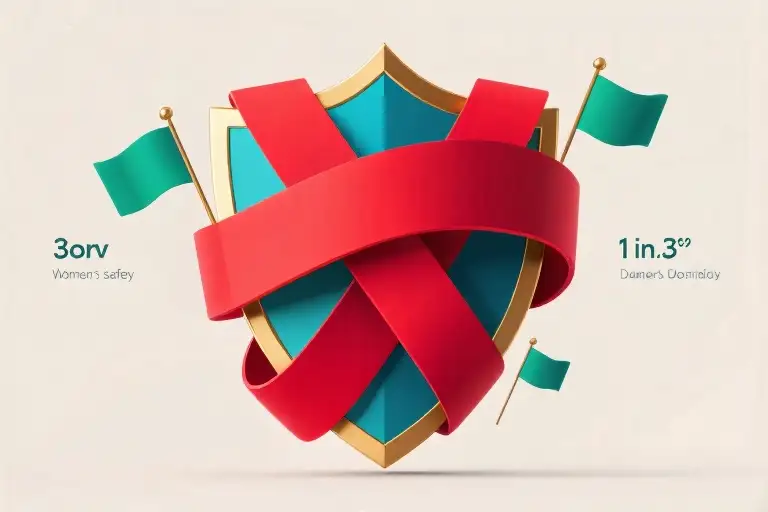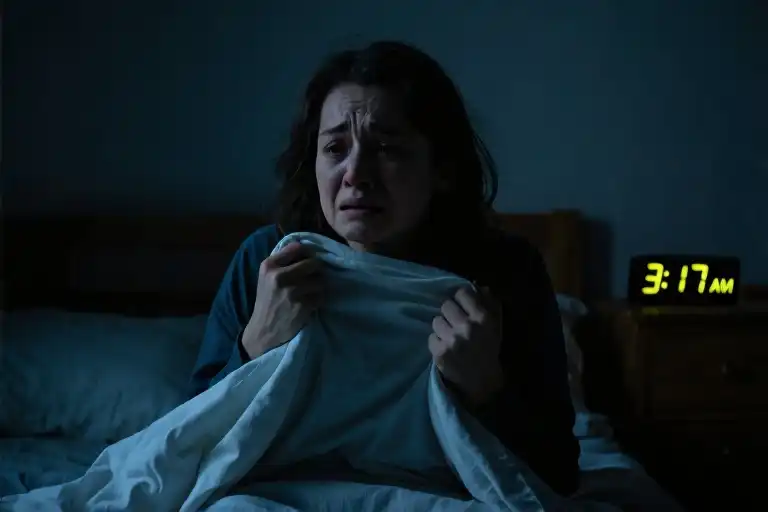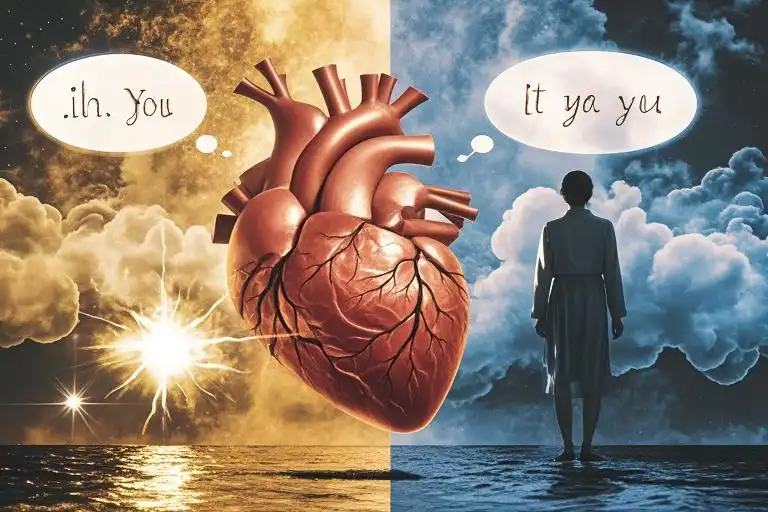The glow of your phone screen is the only light in the room at 3:17 AM. Your thumb moves automatically, refreshing their Instagram profile for the seventeenth time tonight. The rational part of you knows they haven’t posted anything new – you’d have gotten the notification. But your heart keeps checking anyway, clinging to digital breadcrumbs of someone who walked away without explanation.
This is the modern heartbreak ritual. No dramatic farewells, no tearful confrontations. Just unanswered texts growing colder by the day until the silence becomes its own kind of answer. Why does this hurt more than a clean breakup? Why does the absence of closure feel like an open wound that refuses to heal?
Neuroscience explains what your heart already knows: our brains are wired to seek completion. Psychologists call it the Zeigarnik effect – we remember uncompleted or interrupted tasks better than completed ones. When someone leaves without explanation, your mind keeps returning to that emotional unfinished business like a tongue probing a missing tooth. Every ‘what if’ and ‘why’ becomes a mental loop you can’t escape.
You’re not crazy for struggling to move on. You’re human. That unanswered text thread isn’t just digital artifacts – it’s the archaeological remains of a love story that ended mid-sentence. The bed feels too big, your routines feel hollow, and songs you used to love now feel like personal attacks from the universe.
But here’s what you may not realize yet: this pain contains hidden nutrients for growth. What feels like an ending could be the fertile ground where your next chapter takes root. This article won’t give you empty platitudes about ‘plenty of fish’ or tell you to ‘just get over it.’ Instead, we’ll walk through the psychology of unfinished love together – why it hurts so uniquely, how to reclaim your narrative, and ways to transform this experience into emotional strength you didn’t know you possessed.
Consider this your permission slip to feel what you’re feeling without judgment. Your roadmap for when GPS keeps recalculating but the destination keeps moving. Your evidence that healing isn’t linear, and that’s okay. Most importantly, your reminder that unfinished love says nothing about your worth – and everything about your capacity to love deeply.
Let’s begin where all real healing starts: by acknowledging exactly where you are, not where you ‘should’ be. Your 3 AM phone-checking sessions aren’t pathetic – they’re human. Your confusion isn’t weakness – it’s the natural response to emotional whiplash. And your ability to still care after being hurt? That’s not foolishness. That’s courage wearing a disguise.
Breathe. We’ll take this one step at a time.
When Goodbye Has No Words: The Psychology of Silent Breakups
There’s a particular kind of heartbreak that lingers longer than most – the kind where the person simply disappears without explanation, leaving behind only unanswered texts and unresolved questions. Unlike clean breakups with clear endings, these silent departures create emotional limbo where closure never comes. Research suggests nearly 75% of people find unexplained breakups more psychologically damaging than mutual separations, precisely because our brains struggle to process incomplete emotional experiences.
The Zeigarnik Effect in Love
This phenomenon stems from what psychologists call the Zeigarnik effect – our mind’s tendency to remember uncompleted tasks better than completed ones. When applied to relationships, this explains why we obsessively replay conversations and analyze every detail after someone ghosts us. Our brain keeps returning to these unfinished emotional loops, trying desperately to ‘complete’ the story that was abruptly cut short.
Sarah, a 28-year-old teacher, describes how two years after her partner vanished from their shared apartment while she was at work (taking only his toothbrush and leaving everything else behind), she still dreams about him returning to explain. “I wake up reaching for my phone,” she shares, “not because I want him back, but because some part of me still needs to understand what happened that Wednesday afternoon when our relationship disappeared with half-used shampoo bottles still in the shower.”
The Weight of Unspoken Endings
Silent breakups inflict unique damage because they:
- Deny emotional validation – Without acknowledgment of the relationship’s end or value, we question if it was ever real
- Create false hope – The lack of definitive closure makes moving forward feel like betrayal
- Shift blame inward – When given no external reason, we assume the worst about ourselves
Like Sarah, many find themselves stuck in what therapists call ‘ambiguous loss’ – grieving someone who’s physically gone but psychologically present because the relationship never properly ended. The bed still smells like them. Their favorite coffee mug remains in your cupboard. You catch yourself drafting texts you’ll never send at 2am.
Breaking the Cycle
Understanding these psychological mechanisms helps begin the healing process:
- Recognize your brain is simply trying to complete what feels like an unfinished task
- Create your own closure through rituals (writing unsent letters, symbolic goodbyes)
- Reframe the silence as information about their emotional capacity, not your worth
As we’ll explore next, these unfinished love stories ultimately reveal more about the leaver’s limitations than the left’s inadequacies. The silence wasn’t your failure to be heard – it was their failure to speak.
You Weren’t Returned, Just Misdelivered
There’s a quiet revolution that happens in the aftermath of heartbreak—the moment you realize their leaving wasn’t about your worth, but about their capacity to receive what you offered. This isn’t the sentimental ‘plenty of fish’ cliché; it’s the psychological truth that temporary love and lasting love operate on fundamentally different frequencies.
The Temporary vs. Timeless Love Spectrum
Seasonal love (those relationships that bloom intensely but wither quickly) often carries these hallmarks:
- Conditional warmth: Affection fluctuates based on mood or circumstance
- Future avoidance: Conversations about ‘us in five years’ get deflected
- Conflict amnesia: Repeated arguments about the same issues without resolution
- Emotional hoarding: They take your support but rarely reciprocate depth
Meanwhile, enduring love behaves differently:
- Secure roots: You feel safe even during disagreements
- Growth language: ‘We’ statements replace ‘you’ accusations
- Repair rituals: After fights, there’s conscious effort to reconnect
- Generous curiosity: They actively notice and nurture your evolving self
This distinction matters because healing begins when we stop personalizing rejection and start recognizing compatibility patterns. That person who walked away? They weren’t rejecting you—they were revealing their inability to participate in the type of connection you inherently offer.
The Address Theory of Love
Imagine love as a letter carrying your most vulnerable words. When it’s returned unopened, the error isn’t in your writing—it’s in the delivery system. Some people simply don’t have the emotional ‘address’ to receive certain depths of feeling. Their return stamp says more about their postal code than your prose.
Interactive reflection (grab a journal for this):
- Complete this sentence three different ways: “In that relationship, I learned…”
- Example: “…that love without consistency is just intense liking”
- Now read your answers aloud. Hear how they’re about your growth, not their limitations?
The Courage in Misplaced Love
Every ‘failed’ relationship deposits two gifts we often overlook:
- Clarity crystals: Those sharp realizations about what you truly need (not just what you’ll tolerate)
- Compassion muscles: The strength to love deeply despite knowing the risks
That ache you feel isn’t proof you loved wrong—it’s evidence you loved bravely. And bravery always outlasts convenience, which is why seasonal lovers fade while your capacity for depth remains.
Healing checkpoint: When shame whispers “you should’ve known better,” reply with “I was learning then what I know now.” Growth isn’t linear; it spirals.
Preparing for the Right Delivery
As you rebuild, notice these signs you’re shifting toward healthier love:
- You stop romanticizing potential (“they could be amazing if…”) and start valuing evidence
- Red flags no longer feel exciting but exhausting
- Your boundaries feel like self-care, not punishment
This isn’t about becoming cynical—it’s about developing what psychologists call ‘discriminating vulnerability.’ The wisdom to choose who gets access to your tender parts.
Action step: Make a ‘Love Delivery Checklist’ with three non-negotiables for future connections. Not superficial traits (‘must love hiking’), but core treatment standards (‘must handle conflict with respect’).
Remember: A returned letter doesn’t mean the post office is broken. It means the next envelope gets a better address.
Practical Healing: 3 Tools to Release Emotional Baggage
Moving forward after heartbreak requires more than just time—it demands intentional action. These research-backed techniques help transform emotional pain into tangible progress.
The 15-Minute Rage Letter (Then Delete)
When silence leaves wounds unexpressed, writing becomes surgical removal of emotional shrapnel. Neuroscience confirms that articulating pain reduces amygdala activation by up to 50%.
How it works:
- Set a timer for 15 minutes
- Write everything you wish you’d said (no censorship)
- Include specific incidents with sensory details:
- “When you canceled our anniversary dinner, the orchid corsage wilted in my fridge”
- Save for 24 hours, then permanently delete
Why it helps: This ritual creates psychological closure when real conversations aren’t possible. The deletion symbolizes releasing your claim on their emotional response.
Environmental Reset: Rewire Your Neural Pathways
Your surroundings constantly trigger subconscious memories. A 2022 University of London study showed changing just three elements in a room reduces intrusive thoughts by 37%.
Actionable options:
- Quick reset: Rearrange furniture + swap out bedding
- Moderate reset: Paint one accent wall + donate shared items
- Deep reset: Take a 3-day solo trip (even locally)
Pro tip: Incorporate new scents—olfactory memory is powerfully linked to emotional recall.
The Growth Evidence Jar
Heartbreak distorts self-perception. This visual antidote combats post-breakup cognitive dissonance.
Weekly practice:
- Use any container (mason jar, shoebox)
- Add dated notes documenting:
- Small victories (“Ran 3 miles without stopping”)
- Kindness received (“Sarah brought soup when I was sick”)
- Moments of unexpected joy
- Review when doubting your progress
The science behind it: Positive psychology research confirms that consciously noting achievements rebuilds self-worth after rejection.
These tools work because they address breakup recovery’s three dimensions: emotional expression (rage letter), environmental triggers (space reset), and identity reconstruction (growth jar). Start with one—healing happens in layers, not leaps.
The Shape of Healing: When Love Becomes Your Teacher
Six months from now, you’ll mention their name without your voice catching. You’ll reference that summer or that inside joke, and it won’t feel like pressing on a bruise. The memory will simply be what it is—a chapter that helped carve you into who you’re becoming. This isn’t about forgetting; it’s about integration.
The Alchemy of Experience
Every relationship leaves fingerprints on your heart. Some are gentle, others leave marks that take longer to fade. But even the painful ones have purpose. Think of those loves as emotional sandpaper—rough in the moment, but essential for smoothing your edges and revealing your truest grain. What feels like destruction is often just the necessary friction before clarity.
Three signs you’re transforming pain into wisdom:
- You can acknowledge their good qualities without romanticizing the relationship
- Your “what if” questions have shifted from “what if they stayed?” to “what if this makes me love better next time?”
- You’ve discovered personal boundaries you’ll never compromise again
Today’s Small Victory
Healing isn’t a dramatic montage—it’s the accumulation of ordinary moments where you choose yourself. Right now, do one tangible thing to honor your resilience:
- Delete that one photo you’ve been keeping “just in case”
- Reorganize a space they used to occupy
- Text a friend about anything except your ex
These micro-actions rewire your brain’s pathways, creating new emotional default settings.
“Some loves are sandpaper—harsh in the moment, but essential for revealing your truest grain.” The discomfort serves a purpose. Each interaction, each goodbye, each silent treatment taught you something vital about your needs, your deal-breakers, your incredible capacity to adapt.
The Invitation
Tonight, light a candle (literal or metaphorical) for the version of you that survived what you once thought would break you. The light isn’t for who you lost—it’s for who you found in the wreckage. That person? Worth staying for.
Your next love story won’t begin where this one ended—it will grow from the fertile soil of everything you learned in between.





